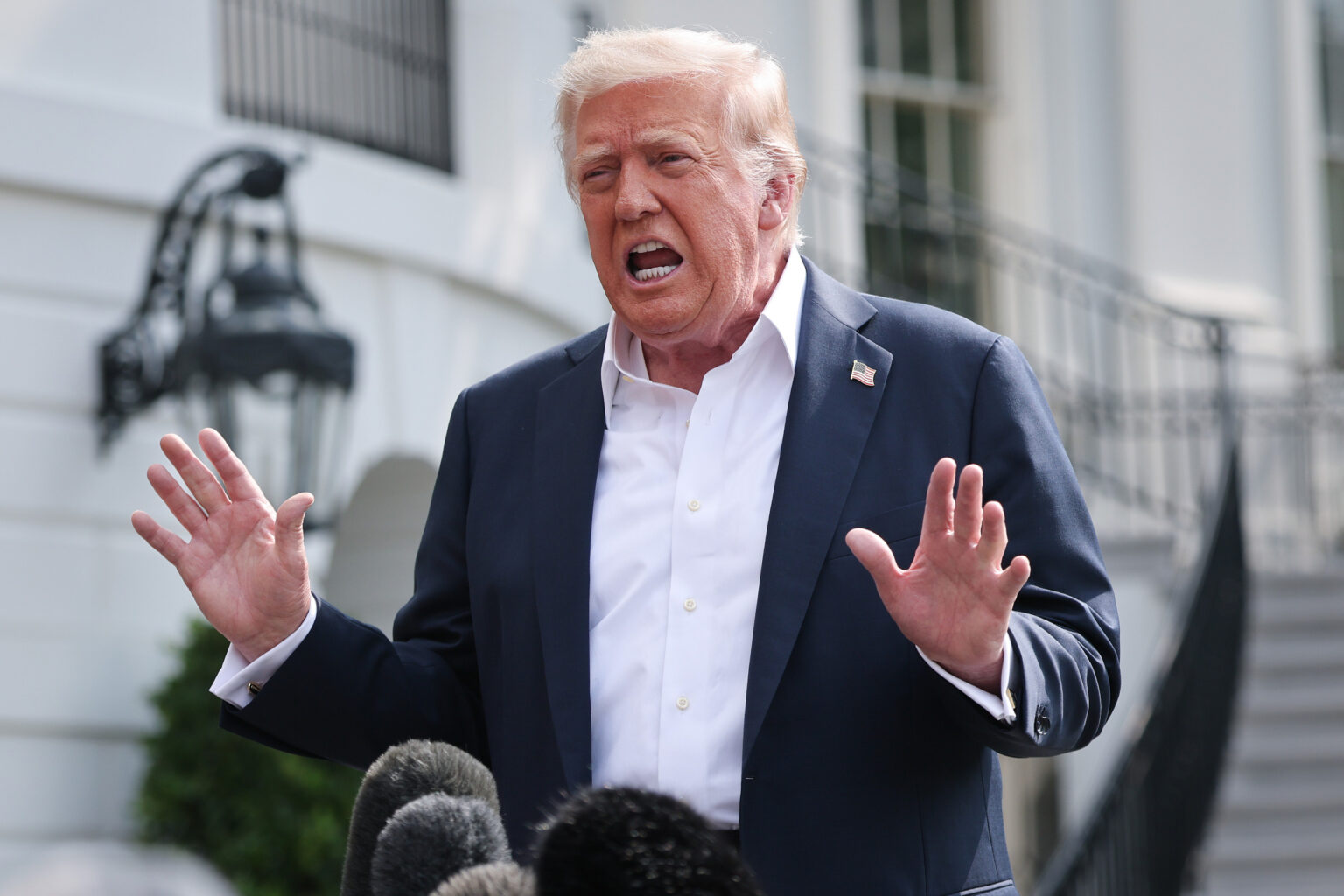President Donald Trump and his administration suffered a trio of legal defeats within hours on Friday in cases regarding sanctions against International Criminal Court (ICC) employees, a new 15 percent indirect cost rate for federal research at the Pentagon and journalist Bob Woodward’s publication of his 2022 book, The Trump Tapes.
Newsweek contacted the White House and the Department of Justice for comment on Saturday via email and online inquiry form, respectively, outside regular office hours.
Why It Matters
With the Republican Party enjoying a slim majority in both the Senate and House, the courts have emerged as arguably the greatest impediment to the Trump administration’s policies.
Courts have intervened to block or suspend the administration’s policies over a swath of issues, including attempts to shut down the U.S. Agency for International Development and to ban transgender personnel from the military, though the Supreme Court temporarily allowed the latter policy to go ahead in May.
What To Know
On Friday, U.S. District Judge Nancy Torresen blocked an executive order issued by Trump on February 6 that imposed a range of sanctions on ICC employees involved in cases against the U.S. or close U.S. allies, such as Israel.
Torresen concluded that the move, which saw sanctions imposed on the British ICC Prosecutor Karim Khan, appeared to “restrict substantially more speech than necessary.”
In February, Khan, who has been involved with ICC investigations into Israel, was added to the American list of “Specially Designated Nationals and Blocked Persons,” barring him from doing business with Americans and restricting his access to the U.S.
Separately, in Massachusetts, U.S. District Judge Brian E. Murphy concluded that the Trump administration didn’t have the authority to impose a 15 percent ceiling on indirect costs related to federally funded research at the Pentagon.
This is the latest of a series of legal defeats the Trump administration has suffered in response to its imposition of 15 percent indirect cost limits for research across multiple government departments.
The judge wrote: “The Government has, for the fourth time, purported to announce a policy that has consistently been deemed unlawful, without acknowledgment of its apparent illegality and without any attempt to structure the policy in a manner that fulfills the established requirements of law.”
In New York, U.S. District Judge Paul Gardephe ruled against Trump’s claim that the publication of certain interviews he conducted with Woodward constituted a breach of copyright.
Woodward published The Trump Tapes in 2022, consisting of 20 interviews he conducted with the president between 2016 and 2020 in advance of his 2020 book on the first Trump administration, Rage.
What People Are Saying
U.S. District Judge Nancy Torresen wrote in her ruling: “The executive order appears to restrict substantially more speech than necessary to further that end. The executive order broadly prohibits any speech-based services that benefit the prosecutor, regardless of whether those beneficial services relate to an ICC investigation of the United States, Israel, or another U.S. ally.”
U.S. District Judge Paul Gardephe wrote his ruling: “While it appears unlikely that Plaintiff can adequately plead a plausible copyright interest in The Trump Tapes or any non-preempted state law claim, this Court cannot find at this stage that any amendment would be futile.”
What Happens Next
It remains to be seen how disruptive the legal system will be for Trump’s policy agenda going forward.
The Supreme Court has six conservative-leaning justices and three liberal-leaning ones, meaning the administration may try to get as many cases as possible referred to the nation’s highest court.
Read the full article here

